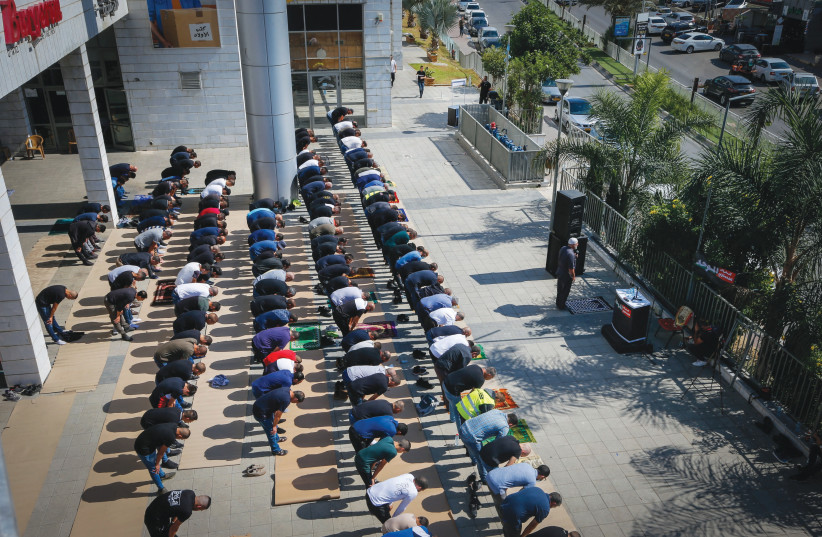Israeli Prime Minister Benjamin Netanyahu pledged on Wednesday to release at least 200 million shekels ($54 million) to Arab towns after his finance minister's decision to withhold them drew accusations of racism.
Netanyahu said the money would be transferred after a review but gave no details on what that would entail or how long it would take. His spokesperson declined further comment.
"Israel's Arab citizens deserve what all citizens do and I'm committed to this. I demand this of all government ministries and it will be carried out following an evaluation to ensure that funds are transferred for their designated purpose – Israel's Arab citizens," Netanyahu said in a statement.
Smotrich doubles down on freezing funds
At the same time, Finance Minister Bezalel Smotrich doubled down on the fund freeze at a press briefing.
Echoing his earlier announcement, Smotrich, a member of Netanyahu's religious-nationalist coalition, told reporters on Wednesday that he was withholding budget funds marked for Arab local councils out of fear that the money would end up in the hands of criminals and terrorists.

Arab community leaders said the minister was guided by racism.
"The finance minister is continuing his campaign of incitement against Arab society and its elected leaders," said the National Committee of Arab Local Councils in Israel.
Arab citizens, most of whom are descendants of Palestinians who stayed in the new Israeli state after the 1948 war surrounding its creation, make up about a fifth of Israel's population.
Palestinian citizens in Israel have for decades faced social and economic disparities with Jewish citizens, including high poverty, overcrowding, inadequate infrastructure, and poorly funded schools.
The funding, earmarked for basic services and development in 67 Arab local councils, is an effort to correct years of insufficient budget allocations and to narrow the gaps between Jewish Israeli and Palestinian communities, said Ameer Bisharat, CEO of the National Committee of Arab Local Councils in Israel.
